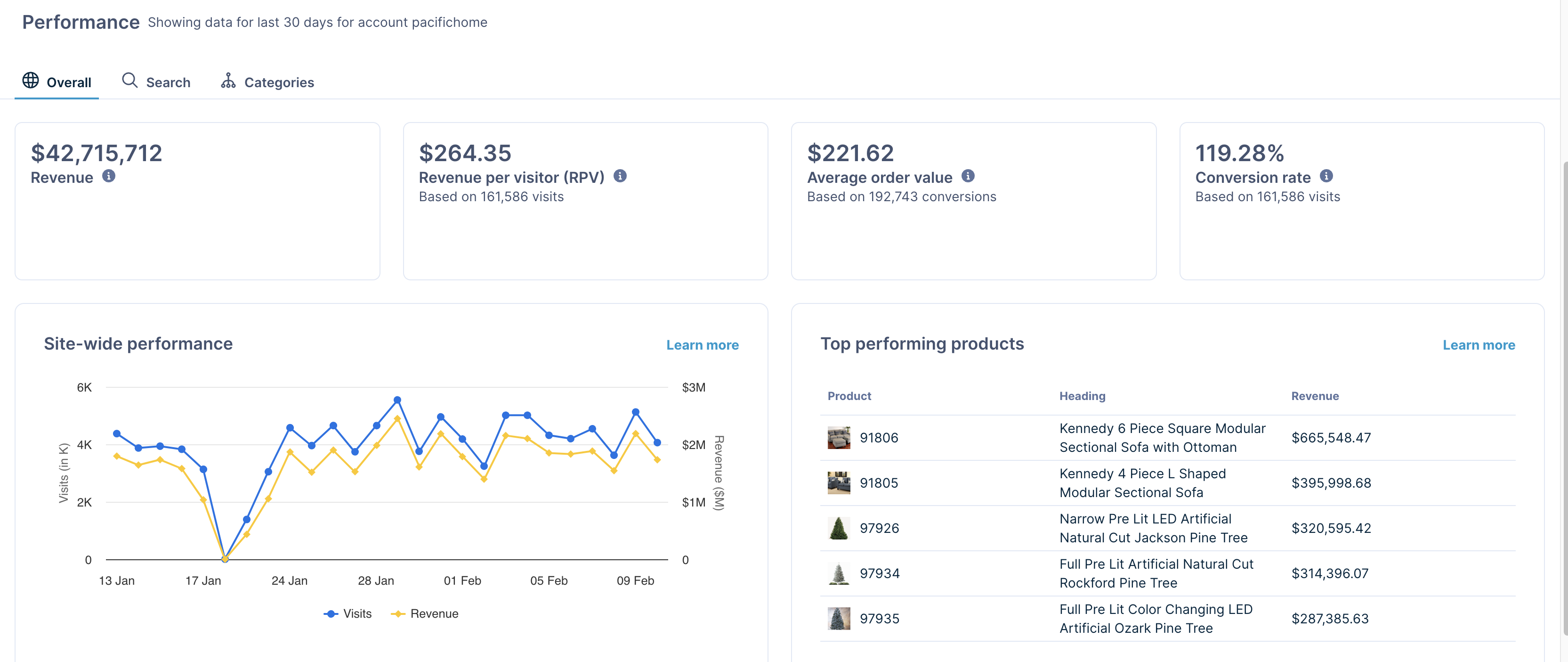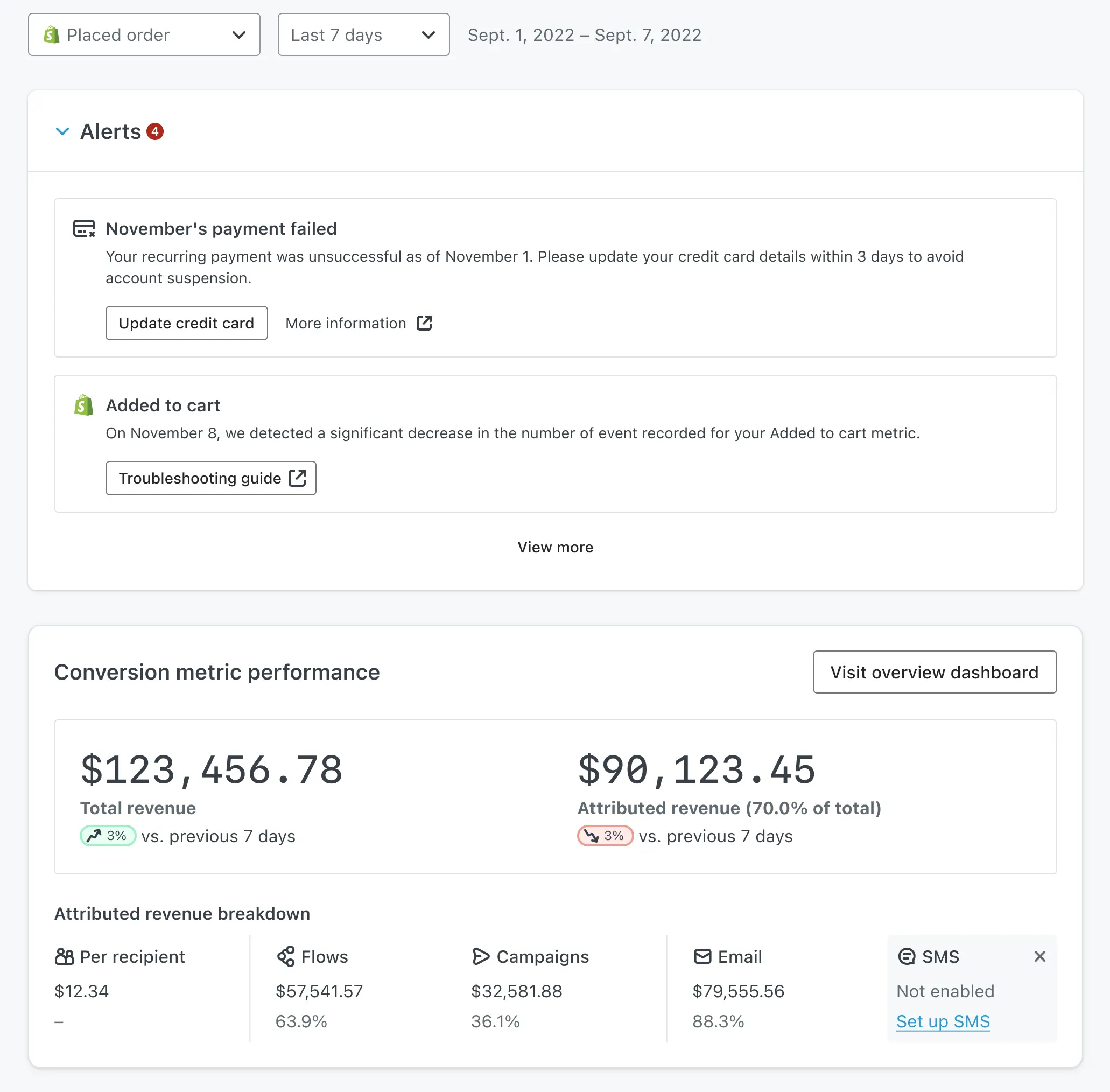Alternatives to Dynamic Yield Experience Optimization Platform
1. Bloomreach Discovery
+Pros
- Commerce-Specific AI Expertise with Loomi AI engine trained on over 14 years of commerce data.
- Proven Performance Results with consistent value delivery across diverse customer implementations.
- Enterprise-Scale Technical Architecture with server-side execution and 24/7 enterprise SLA coverage.
- Automated Merchandising Capabilities reducing manual operational tasks by 30-50%.
-Cons
- Implementation Complexity with enterprise deployments requiring 20+ weeks for custom Java integrations.
- Pricing Volatility Concerns with unexpected price changes during contract periods.
- Limited Front-End Flexibility compared to alternatives like Algolia.
- Reliability Risks with documented outages during holiday code freezes.
One highlighted feature and why it's amazing
Uses natural language processing to interpret contextual queries, successfully distinguishing between similar terms like 'dress shirt' versus 'shirt dress'.

Another highlighted feature of why it’s amazing
Combines real-time user behavior with historical data to dynamically adjust search results and category pages for individual users.
2. Klaviyo
+Pros
- Unified marketing automation combining email, SMS, and review management with AI-powered personalization .
- Deep Shopify integration providing automated data sync and behavioral tracking .
- Proven ROI delivery across multiple customer implementations .
-Cons
- Implementation complexity despite moderate technical ratings .
- Active profile billing methodology can penalize businesses with large but inactive customer databases .
- 90-day 'suppression jail' limits reactivation of unengaged contacts .
One highlighted feature and why it's amazing
Transforms audience building from manual rule configuration to natural language interaction, enabling complex behavioral targeting without requiring technical expertise .

Another highlighted feature of why it’s amazing
Generate personalized content while maintaining brand voice consistency through machine learning models trained on existing brand communications .
3. LimeSpot
+Pros
- Deep platform integration capabilities with Shopify and BigCommerce
- Real-time behavioral analysis and machine learning algorithms provide continuous optimization
- Proven performance capabilities with measurable business impact
-Cons
- Data quality dependencies require clean product attributes and sufficient behavioral data for optimal performance
- Enterprise pricing opacity creates budget planning challenges for larger organizations
- Platform limitations restrict appeal to businesses using Shopify or BigCommerce exclusively
One highlighted feature and why it's amazing
Generates dynamic product recommendations, personalized discounts, and trending product grids based on real-time customer behavior analysis.

Another highlighted feature of why it’s amazing
Enables businesses to target audiences by demographics, purchase history, and browsing patterns.
Other Alternatives
Nosto Commerce Experience Platform
Octane AI
Rebuy
Shogun Page Builder
How We Researched This Guide
About This Guide: This comprehensive analysis is based on extensive competitive intelligence and real-world implementation data from leading AI vendors. StayModern updates this guide quarterly to reflect market developments and vendor performance changes.
205+ verified sources per analysis including official documentation, customer reviews, analyst reports, and industry publications.
- • Vendor documentation & whitepapers
- • Customer testimonials & case studies
- • Third-party analyst assessments
- • Industry benchmarking reports
Standardized assessment framework across 8 key dimensions for objective comparison.
- • Technology capabilities & architecture
- • Market position & customer evidence
- • Implementation experience & support
- • Pricing value & competitive position
Research is refreshed every 90 days to capture market changes and new vendor capabilities.
- • New product releases & features
- • Market positioning changes
- • Customer feedback integration
- • Competitive landscape shifts
Every claim is source-linked with direct citations to original materials for verification.
- • Clickable citation links
- • Original source attribution
- • Date stamps for currency
- • Quality score validation
Analysis follows systematic research protocols with consistent evaluation frameworks.
- • Standardized assessment criteria
- • Multi-source verification process
- • Consistent evaluation methodology
- • Quality assurance protocols
Buyer-focused analysis with transparent methodology and factual accuracy commitment.
- • Objective comparative analysis
- • Transparent research methodology
- • Factual accuracy commitment
- • Continuous quality improvement
Quality Commitment: If you find any inaccuracies in our analysis on this page, please contact us at research@staymodern.ai. We're committed to maintaining the highest standards of research integrity and will investigate and correct any issues promptly.